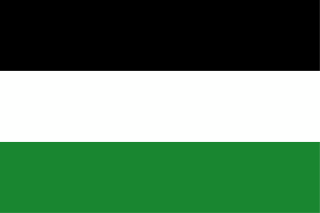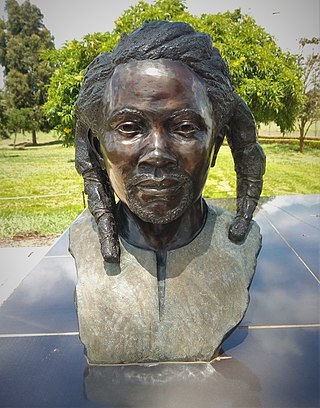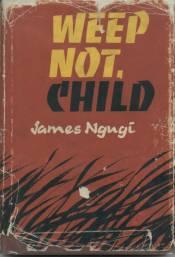Related Research Articles

A part of Eastern Africa, the territory of what is known as Kenya has seen human habitation since the beginning of the Lower Paleolithic. The Bantu expansion from a West African centre of dispersal reached the area by the 1st millennium AD. With the borders of the modern state at the crossroads of the Bantu, Nilo-Saharan and Afro-Asiatic ethno-linguistic areas of Africa, Kenya is a multi-ethnic state. The Wanga Kingdom was formally established in the late 17th century. The Kingdom covered from the Jinja in Uganda to Naivasha in the East of Kenya. This is the first time the Wanga people and Luhya tribe were united and led by a centralized leader, a king, known as the Nabongo.

The Kenya African National Union (KANU) is a Kenyan political party that ruled for nearly 40 years after Kenya's independence from British colonial rule in 1963 until its electoral loss in 2002. It was known as Kenya African Union (KAU) from 1944 but due to pressure from the colonial government, KAU changed its name to Kenya African Study Union (KASU) mainly because all political parties were banned in 1939 following the start of the Second World War. In 1946 KASU rebranded itself into KAU following the resignation of Harry Thuku as president due to internal differences between the moderates who wanted peaceful negotiations and the militants who wanted to use force, the latter forming the Aanake a forty, which later became the Mau Mau. His post was then occupied by James Gichuru, who stepped down for Jomo Kenyatta in 1947 as president of KAU. The KAU was banned by the colonial government from 1952 to 1960. It was re-established by James Gichuru in 1960 and renamed KANU on 14 May 1960 after a merger with Tom Mboya's Kenya Independence Movement.

The Mau Mau rebellion (1952–1960), also known as the Mau Mau uprising, Mau Mau revolt, or Kenya Emergency, was a war in the British Kenya Colony (1920–1963) between the Kenya Land and Freedom Army (KLFA), also known as the Mau Mau, and the British authorities. Dominated by Kikuyu, Meru and Embu fighters, the KLFA also comprised units of Kamba and Maasai who fought against the European colonists in Kenya, the British Army, and the local Kenya Regiment.

Jomo Kenyatta was a Kenyan anti-colonial activist and politician who governed Kenya as its Prime Minister from 1963 to 1964 and then as its first President from 1964 to his death in 1978. He was the country's first president and played a significant role in the transformation of Kenya from a colony of the British Empire into an independent republic. Ideologically an African nationalist and a conservative, he led the Kenya African National Union (KANU) party from 1961 until his death.

The Kikuyu are a Bantu ethnic group native to East Africa Central Kenya. At a population of 8,148,668 as of 2019, they account for 17.13% of the total population of Kenya, making them Kenya's largest ethnic group.

The Kenya African Democratic Union (KADU) was a political party in Kenya. It was founded in 1960 when several leading politicians refused to join Jomo Kenyatta's Kenya African National Union (KANU). It was led by Ronald Ngala who was joined by Moi's Kalenjin Political Alliance, the Masai United Front, the Kenya African Peoples Party, the Coast African Political Union, Masinde Muliro's Baluhya Political Union and the Somali National Front. The separate tribal organisations were to retain their identity and so, from the very start, KADU based its political approach on tribalism. KADU's aim was to defend the interests of the so-called KAMATUSA as well as the British settlers, against the imagined future dominance of the larger Luo and Kikuyu that comprised the majority of KANU's membership, when it became inevitable that Kenya will achieve its independence. The KADU objective was to work towards a multiracial self government within the existing colonial political system. After release of Jomo Kenyatta, KADU was becoming increasingly popular with European settlers and, on the whole, repudiated Kenyatta's leadership. KADU's plan at Lancaster meetings was devised by European supporters, essentially to protect prevailing British settlers land rights.

Dedan Kimathi Waciuri was the senior military and spiritual leader of the Mau Mau Uprising. Widely regarded as a revolutionary leader, he led the armed military struggle against the British colonial regime in Kenya in the 1950s until his capture in 1956 and execution in 1957. Kimathi is credited with leading efforts to create formal military structures within the Mau Mau, and convening a war council in 1953. He, along with Baimungi M'marete, Musa Mwariama, Kubu Kubu, General China and Muthoni Kirima, was one of the Field Marshals.
The Kikuyu Central Association (KCA), led by James Beauttah and Joseph Kang'ethe, was a political organisation in colonial Kenya formed in 1924 to act on behalf of the Gĩkũyũ community by presenting their concerns to the British government. One of its greatest grievances was the expropriation of the most productive land by British settlers from African farmers. Most members of the organisation were from the Gĩkũyũ tribe.

The Kenya African Union (KAU) was a political organization in colonial Kenya, formed in October 1944 prior to the appointment of the first African to sit in the Legislative Council. In 1960 it became the current Kenya African National Union (KANU).

The Luo of Kenya and Tanzania are a Nilotic ethnic group native to western Kenya and the Mara Region of northern Tanzania in East Africa. The Luo are the fourth-largest ethnic group (10.65%) in Kenya, after the Kikuyu (17.13%), the Luhya (14.35%) and the Kalenjin (13.37%). The Tanzanian Luo population was estimated at 1.1 million in 2001 and 3.4 million in 2020. They are part of a larger group of related Luo peoples who inhabit an area ranging from South Sudan, southwestern Ethiopia, northern and eastern Uganda, southwestern Kenya, and northern Tanzania.

Taveta is the name of a tribe found in Kenya. It is also the name of the principal town in the land of the Taveta people and the name of the surrounding subdistrict of Kenya.
John William Arthur was a medical missionary and Church of Scotland minister who served in British East Africa (Kenya) from 1907 to 1937. He was known simply as Doctor Arthur to generations of Africans.

Harry Thuku was a Kenyan born in Kiambu, Mitahato village. As a politician, he was one of the pioneers in the development of modern African nationalism in Kenya. He helped found the Young Kikuyu Association and the East African Association before being arrested and exiled from 1922 to 1931. In 1932 he became President of the Kikuyu Central Association, in 1935 founded the Kikuyu Provincial Association, and in 1944 founded the Kenya African Study Union. Opposed to the Mau Mau movement, he later retired to coffee-farming.

Weep Not, Child is a 1964 novel by Kenyan author Ngũgĩ wa Thiong'o. It was his first novel, published in 1964 under the name James Ngugi. It was among the African Writers Series. It was the first English novel to be published by an East African. Thiong'o's works deal with the relationship between Africans and white settlers in colonial Kenya, and are heavily critical of colonial rule. Specifically, Weep Not, Child deals with the Mau Mau Uprising, and "the bewildering dispossession of an entire people from their ancestral land." Ngũgĩ wrote the novel while he was a student at Makerere University.

James Beauttah (1889–1985) was a Kenyan anti-colonial activist and political leader.
The Swynnerton Plan was a colonial agricultural policy that appeared as a government report in 1954 in Kenya, aiming to intensify the development of agricultural practice in the Kenya Colony. The plan was geared to expanding native Kenyan's cash-crop production through improved markets and infrastructure, the distribution of appropriate inputs, and the gradual consolidation and enclosure of land holdings.

The history of the evolution of the traits of women in Kenya can be divided into Women within Swahili culture, Women in British Kenya, and Kenyan Women post-Independence. The condition and status of the female population in Kenya has faced many changes over the past century.
Ciokaraine M'Barungu, known simply as Ciokaraine, was a prominent female diviner, political leader and human rights activist from Igembe, Kenya. She was a fierce supporter of women's rights and is known for having offered up her son's life during the Mau Mau Uprising.
The Luo Union was a welfare organisation formed in Nairobi, Kenya, in the early 1920s. This organisation sought to create, expand and govern a general cultural identity among Luo people in East Africa. Luo people are a Nilotic ethnic group native to western Kenya and the Mara Region of northern Tanzania in East Africa. The Luo Union was one of several welfare organisations started during the colonial period in East Africa which aimed at building broad cultural unity. This organisation played a crucial role in creating a collective sense of identity and unity amongst Luo people after the Second World War. It was also an important medium of grassroots political support for African Nationalist movements in the 1950s. The Luo Union FC was the unions soccer club. This club would later become Gor Mahia FC, one of Kenya's best performing football clubs.

Parmenas Githendu Mockerie was a pioneering Kikuyu writer, nationalist and contemporary of Jomo Kenyatta. He published the first book in English by a black Kenyan.